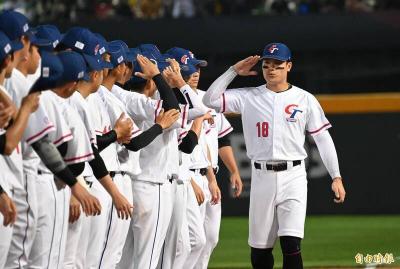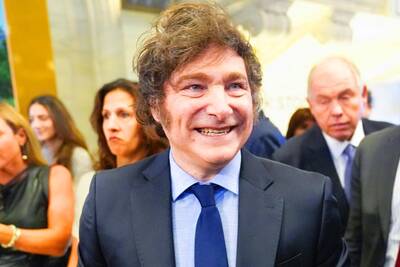Masanori Murakami, Japan’s first export to Major League Baseball, has some career advice for aspiring Japanese players: Forget loyalty, baseball is business.
Murakami was pitching for the San Francisco Giants before the likes of Hideo Nomo and Daisuke Matsuzaka were even born.
And on the 45th anniversary of his US pro debut, the 65-year-old was adamant that the Major Leagues should be the target for all Japanese players looking to make the breakthrough.

PHOTO: REUTERS
“Baseball players should choose the best place to compete and now that is MLB. They shouldn’t think about loyalty to a Japanese team,” he said late on Tuesday at an event to mark the anniversary. “Baseball is a business and players should get as much in salary as they can, as interest in their skills rapidly fades.”
Murakami spent two seasons with the Giants from late 1964, and his sojourn eventually led to tighter rules on Japanese playing overseas.
However, he holds no regrets and says more of his countrymen should go now if they can.
Some 18 Japanese, mainly pitchers, have played on MLB teams this season, while the Boston Red Sox alone are home to four expatriates, including Matsuzaka.
The talent outflow has sparked concerns about the quality and business model of the game in Japan and Murakami was doubtful that significant change lay ahead.
“Japanese professional baseball doesn’t really think about its future. It mainly reacts after the fact,” said Murakami, an occasional MLB commentator for national broadcaster NHK. “Only one or two Japanese teams are financially strong — it’s not a good situation.”
Murakami returned from San Francisco to a pro career in Japan, where he played through 1982, but it took three decades before Nomo retraced his path with the Los Angeles Dodgers.
Nomo, like Murakami before him, endured criticism at home about his loyalty to team and country, but he had an advantage that most players in the 1960s did not — an agent.
Nomo’s success, which included Rookie of the Year honors in 1995, turned public opinion in Japan and provided an opportunity for more players to showcase their talent and potentially earn more money overseas after a designated period of play in Japan.
Matsuzaka signed a US$52 million contract in 2006 with the Red Sox, who also stumped up a staggering US$51.1 million just for the right to negotiate a deal with his former team, the Seibu Lions.

The qualifying round of the World Baseball Classic (WBC) is to be held at the Taipei Dome between Feb. 21 and 25, Major League Baseball (MLB) announced today. Taiwan’s group also includes Spain, Nicaragua and South Africa, with two of the four teams advancing onto the 2026 WBC. Taiwan, currently ranked second in the world in the World Baseball Softball Confederation rankings, are favorites to come out of the group, the MLB said in an article announcing the matchups. Last year, Taiwan finished in a five-way tie in their group with two wins and two losses, but finished last on tiebreakers after giving

North Korea’s FIFA Under-17 Women’s World Cup-winning team on Saturday received a heroes’ welcome back in the capital, Pyongyang, with hundreds of people on the streets to celebrate their success. They had defeated Spain on penalties after a 1-1 draw in the U17 World Cup final in the Dominican Republic on Nov. 3. It was the second global title in two months for secretive North Korea — largely closed off to the outside world; they also lifted the FIFA U20 Women’s World Cup in September. Officials and players’ families gathered at Pyongyang International Airport to wave flowers and North Korea flags as the

For King Faisal, a 20-year-old winger from Ghana, the invitation to move to Brazil to play soccer “was a dream.” “I believed when I came here, it would help me change the life of my family and many other people,” he said in Sao Paulo. For the past year and a half, he has been playing on the under-20s squad for Sao Paulo FC, one of South America’s most prominent clubs. He and a small number of other Africans are tearing across pitches in a country known as the biggest producer and exporter of soccer stars in the world, from Pele to Neymar. For

A debate over the soul of soccer is raging in FIFA World Cup holders Argentina, pitting defenders of the social role of the beautiful game against the government of libertarian Argentine President Javier Milei, who wants to turn clubs into for-profit companies. Argentina, which gave the world Diego Maradona and Lionel Messi, is home to some of the world’s most devoted soccer fans — a fact attributed by supporters like Gabriel Nicosia to the clubs’ community outreach. Nicosia is a lifelong supporter of San Lorenzo, a more than 100-year-old first division club based in the working-class Buenos Aires neighborhood of Boedo where